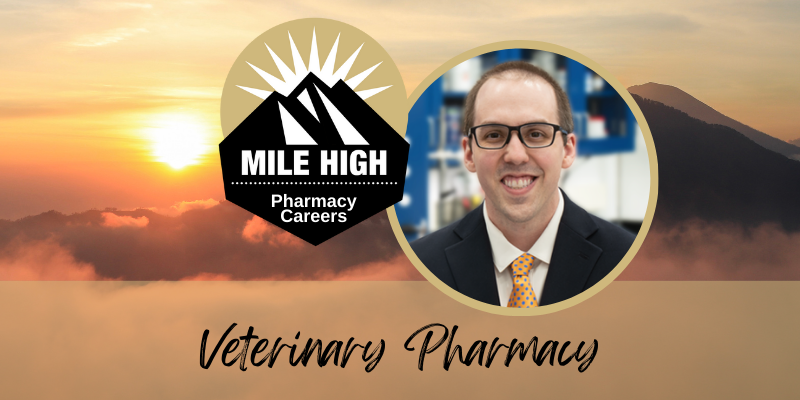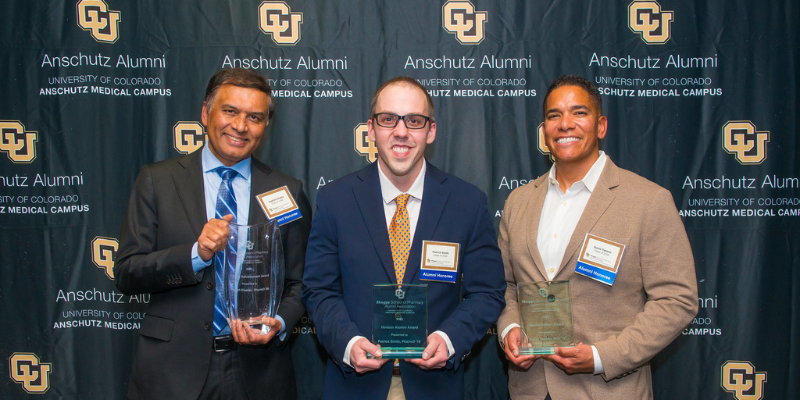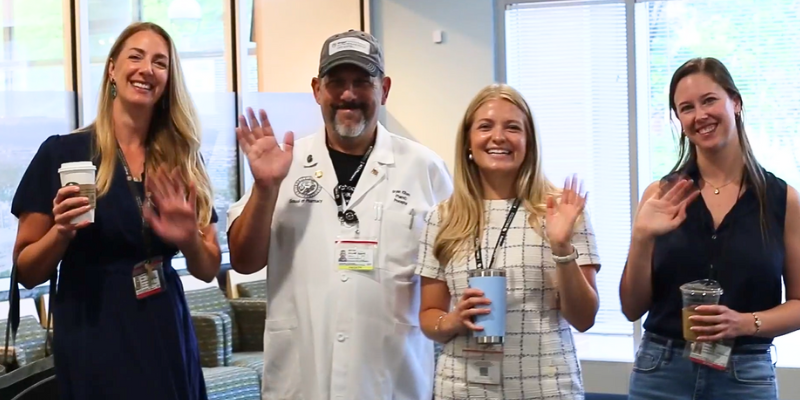What are you currently doing as a pharmacy professional and how did you progress to where you are today?
.png?width=300&name=Headshots%20300%20x%20400%20(Robert%20Fowler).png)
| Robert Fowler, RPh '72 |
I've been the La Junta County Coroner for over 40 years. Before going to pharmacy school, I was in junior college in La Junta and started as a volunteer firefighter. The fire department works with a combination of volunteer and paid staff. They started an emergency medical technician (EMT) program and I really enjoyed it. While at CU Boulder, we had the choice of rotations like cardiology, obstetrics and gynecology, and surgery. I loved going to watch autopsies. So, at that point, with the anatomy and physiology pathology class, we'd go to Boulder Community Hospital and we observed autopsies. That was just fascinating to me.
After graduating from the pharmacy program, I returned to the La Junta fire department working in emergency medical services (EMS). I started choosing the EMS structure for our ambulance and was able to obtain the first two LIFEPAK cardiac monitors.
The fire chief supported me in taking any necessary direction to build EMS and the EMT school together. Around that same time, the county corner was thinking about retiring and he asked me to be a deputy and cover calls. It fit in with my background from pharmacy school with knowledge in physiology, anatomy, pathology, chemistry, and physics. So, I ran for county coroner in 1977. I have been the county coroner ever since. It really fits in with the pharmacy background because of all the classes we took. Pathology, physiology, anatomy, and pharmacology all fit the work in the coroner’s office. When you do a toxicology, you have to understand those drugs. Since then, I've taken that a step further and became a certified death investigator with our state association in 1997.
I also work as a staff pharmacist for Walmart 32 hours a week. I consider that my full-time job whereas my role as county coroner is on call 24 hours a day, seven days a week.
What is different about the person you are today compared to the person you were while in school?
When you first get out of school, you do your pharmacy job, then you go about your business. Over the years, I have now become a very solid member of people’s and family’s lives. I think I have been blessed with all the issues I've covered with the people that have come into my life that I've been able to help. That's just been tremendous. There are people who typically call me “Dr. Bob.” Even with little kids, I’m “Pharmacist Bob.” So, they talk directly to me. I talk to the kids, so they develop that faith and that trust with their pharmacist from the time they're young. You're not above their level. You learn to speak to them at their age in giving them medication and immunizations. That has really changed in the pharmacy system in 50 years.
What has been a defining moment for you as a seasoned professional?
I look at all the opportunities that I was blessed with in undergraduate and pharmacy school.
All the doors of opportunity opened, especially through school during rotations. It opened a lot of doors of opportunity because I was a hospital pharmacist for years having that respect of the physicians long before it was acceptable for pharmacists to write prescriptions.
If there is a defining moment, it is all from the class act education I obtained from the University of Colorado. It's opened the doors of opportunity for everything. It's everything all together. The defining moment was when I graduated from the University of Colorado with an absolutely fabulous education.
What inspired you to attend the CU Pharmacy program and what was your experience while in the program?
I had two mentors who attended the University of Colorado Pharmacy School. They were brilliant and wonderful mentors. As the time approached to decide on a college, there was no choice in my mind to look at anybody else’s school of pharmacy because CU was the only one for the state. That's where I wanted to go.
I also had an uncle who graduated from the University of Colorado with one of the first degrees in chemical engineering. Uncle John lived in Boulder and he finished his PhD there. As I got closer to going to college, he said to me there was only one place to go and that was CU. There was never a doubt in my mind about going to CU. I didn't apply to any other schools. The only one I wanted to attend was the University of Colorado in Boulder.
What is your proudest moment and your favorite thing about working in the pharmacy profession?
Taking care of the patients. You take care of them like they were your mother, father, brother, sister, aunt, uncle, or grandparents. That's exactly what I do every day—treat them like family. Because they are your family. When you work at times, you're out of your house longer than you are at home. The people you meet outside of the home are the people that become your family over that period of time.
It's been a tremendous advantage because when I deal with people I've known from the 3rd, 4th, or 5th generation of a family and someone passes, they often tell me how glad they are to have me as the coroner. They know I’m going to take care of their family. Even though there's a big loss, they want somebody they know and trust as a professional and as a friend. So, I take care of them completely the way I should. The biggest compliment, oddly enough, is getting a thank you card from a family after a death. It’s odd because basically you’re Dr. Death and you deliver bad news. But again, if you treat them like family, you carry them through a very critical time. In a county like this, often when I go on a coroner scene, the first thing family wants to do is give me a hug and that's pretty tremendous.
What sage advice would you pass on to current and future students that was helpful for you in preparing for the job market?
When you're in school, you need to take every class possible. Learn the breadth and the depth of everything you have to do. Then be the best at what you're going to be. Even if you may not like some of it, be the best at what you're going to be. That's where you will gain the respect of several medical practitioners, the community, the families, and peripheral people you have involvement with. If you try to be the best of the best, then you are the best of the best. So, you want to become the pharmacists’ pharmacist. Don't let the degree get in your way. Don't let the title get in your way. Use the knowledge of predecessors who wrote the books we study to expand on their knowledge and become part of the system to be there for people.

.png)

.png?width=300&name=Headshots%20300%20x%20400%20(Robert%20Fowler).png)



